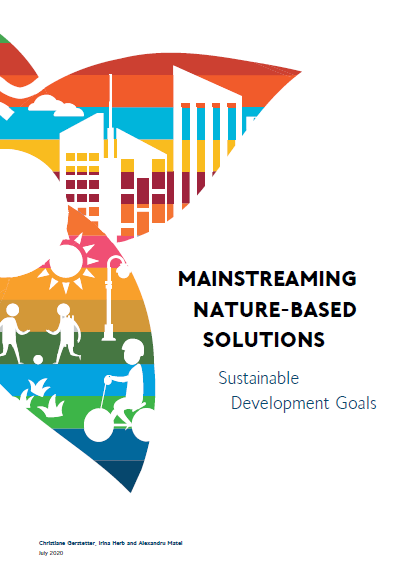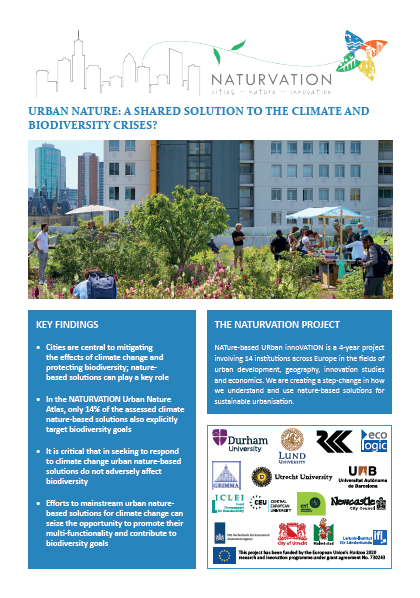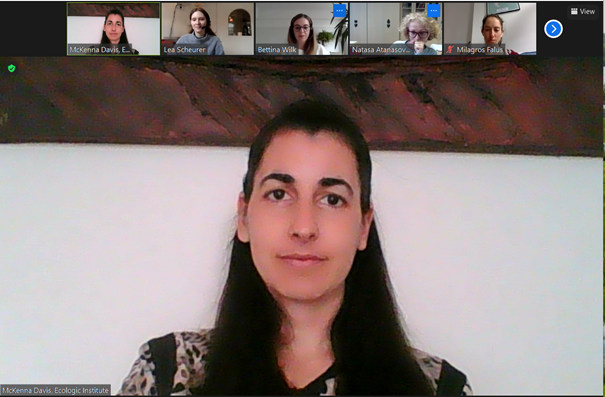Nature-based Solutions and Green Infrastructure: Current policy support and opportunities for mainstreaming
- Presentation
- Date
-
- Location
- Malmö, Sweden
- Panel discussion
-
Sandra Naumann
Green infrastructure (GI) and nature-based solutions (NBS) are increasingly recognised for their potential to contribute to a range of urban challenges and policy objectives. But, how can they be mainstreamed in practice and to what extent do current policy frameworks support their implementation? At the international conference on "Urban Green Infrastructure - Connecting People and Nature for Sustainable Cities", Ecologic Institute's McKenna Davis and Sandra Naumann addressed these and other issues in targeted sessions. The conference, held in Malmö (Sweden) from the 20th to 21st of September 2017, was the final conference of the EU-funded GreenSurge project.
McKenna Davis was invited to participate as panelist in a session on mainstreaming and upscaling urban GI. During the discussions, she highlighted the role that international organizations can play in supporting the green infrastructure approach. In particular, the function of collecting and analyzing experiences, evidence and lessons learned from across Europe and subsequently 'translating' and disseminating these to the range of sectoral actors who can support wider GI mainstreaming was emphasized. She also drew attention to common challenges between cities in terms of barriers to wider uptake and implementation, as well as potential means to overcome these.
Sandra Naumann presented the results of a recent study exploring European and Member State (MS) policy support for NBS, asking the question: Are European and national policy frameworks a helping hand, or rather a thorn in the foot for supporting NBS? The findings emerged from a study conducted within the H2020 project Nature-based Urban Innovation (NATURVATION), which reviewed selected EU and national sectoral policies across six MS for their explicit and implicit use of NBS-related terms and the degree and kind of support for NBS. Results show that current policy frameworks indeed provide a basis for supporting NBS implementation, but that quantitative and measurable targets for NBS employment is still largely lacking, presenting both a challenge and an opportunity. The report will be available for download via the NATURVATION project website by the end of 2017.
The Conference involved over 250 international researchers, decision-makers, planners, and practitioners in plenary sessions, panel discussions and presentations about emerging issues and future challenges surrounding nature-based solutions and sustainable urban development.






